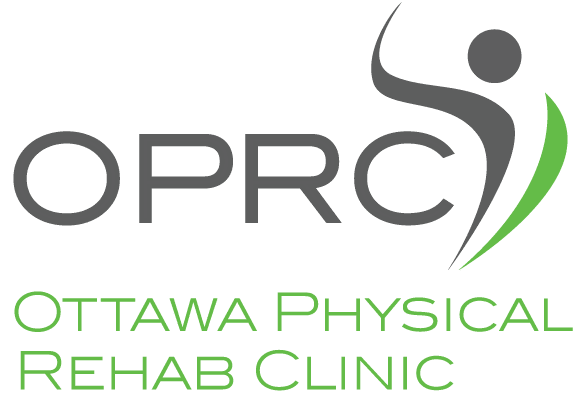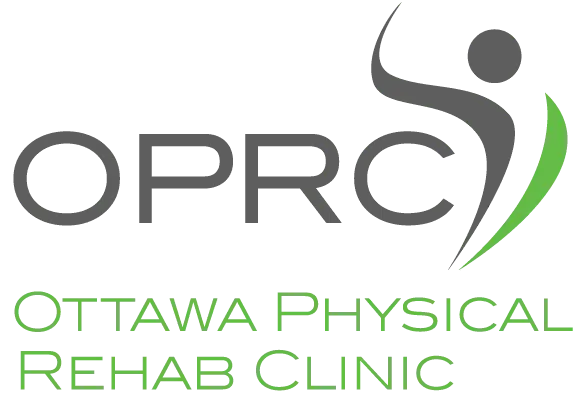
Preparing for surgery isn’t just about scheduling dates or making logistical arrangements—it’s also about preparing your body. Pre-surgical physiotherapy, often called “prehab,” is a clinically supported approach that uses movement, strength training, and education to get you physically ready for the demands of surgery and recovery. By improving mobility, boosting strength, and building confidence, physiotherapy before surgery can help you heal faster, experience fewer complications, and return to your normal activities with greater ease. In this blog, we’ll explore what pre-surgical physiotherapy involves, who it’s recommended for, and why it’s becoming a key part of modern surgical care.
Understanding Pre-Surgical Physiotherapy
Pre-surgical physiotherapy, also known as prehabilitation, is a proactive approach to preparing the body for surgery through targeted movement, strength training, and education. It is commonly recommended in the weeks leading up to orthopedic, neurological, or abdominal surgeries, though it can be helpful before many other procedures as well.
The main goal of pre-surgical physiotherapy is to improve the body’s baseline strength, mobility, and function so that it is better equipped to handle the physical stress of surgery and recover more effectively afterward. This is especially important for procedures that impact the musculoskeletal system, such as knee replacements, hip surgeries, rotator cuff repairs, and spinal operations.
Sessions typically involve guided exercises, functional mobility work, education on what to expect post-operatively, and breathing or pain management strategies. The program is tailored to the individual and may vary depending on the type of surgery, overall health, and time available before the procedure. Starting physiotherapy before surgery can be a key factor in achieving better surgical outcomes and a smoother recovery process.
Benefits of Physiotherapy Before Surgery
Undergoing physiotherapy before surgery offers both physical and psychological benefits that can directly impact recovery quality and speed.
- Improved Muscle Strength: Targeted exercises help maintain or build strength in key muscle groups, making post-surgical mobility and rehabilitation easier.
- Enhanced Joint Mobility: Increasing range of motion before surgery can prevent post-operative stiffness and support smoother transitions to recovery exercises.
- Better Circulation: Movement and breathing techniques improve blood flow, reducing the risk of blood clots and supporting healing.
- Reduced Pain and Inflammation: Gentle pre-surgical movement can alleviate chronic discomfort and reduce swelling, especially in orthopedic conditions.
- Optimized Breathing Function: Respiratory exercises improve lung capacity, which is especially helpful before surgeries requiring anesthesia or bed rest.
- Education and Preparedness: Understanding what to expect after surgery helps reduce anxiety, promotes self-confidence, and encourages active participation in rehab.
- Shortened Hospital Stay: People who participate in prehab are often discharged sooner because they meet mobility goals faster.
- Lower Risk of Post-Operative Complications: Prehab can reduce the chances of complications like infections, pneumonia, or falls by improving functional resilience.
- Faster Return to Activity: A stronger, more mobile body at the time of surgery recovers more quickly, allowing for a speedier return to work, sport, or daily activities.
- Cost Savings Over Time: Improved recovery reduces the need for extended hospital stays, additional therapies, or interventions related to complications.
These benefits demonstrate how investing in pre-surgical physiotherapy can lead to better outcomes and fewer setbacks in recovery.
The Role of Exercises in Pre-Surgical Physiotherapy
Exercise is the foundation of any effective pre-surgical physiotherapy program. It is carefully structured to prepare the body for surgery and to support post-operative recovery.
- Strength Training: Resistance-based exercises focus on building and preserving strength in muscles that will be affected by surgery or involved in post-surgical mobility.
- Mobility Drills: Movements aimed at increasing joint flexibility reduce the risk of stiffness and contractures following surgery.
- Core Stabilization: Core-focused exercises improve postural control and support spine alignment during recovery.
- Functional Movements: Practicing transfers, squats, stair climbing, and walking helps the individual maintain independence after surgery.
- Balance and Coordination Work: Enhancing neuromuscular control can reduce the risk of post-operative falls and improve confidence with movement.
- Breathing and Cardiovascular Conditioning: Low-impact cardio and breathing exercises support respiratory function and endurance, particularly important for longer surgeries.
- Pain-Reduction Techniques: Gentle stretches and mobility work can help reduce chronic pain before surgery and ease post-operative discomfort.
Each exercise is chosen based on the individual’s current capabilities and the demands of the upcoming procedure.
Is Pre-Surgical Physiotherapy Recommended for All Surgeries?
While not mandatory for every procedure, pre-surgical physiotherapy is widely recommended for surgeries involving significant physical disruption, mobility limitations, or post-operative rehab needs.
- Orthopedic Surgeries: Joint replacements, ligament reconstructions, and spinal surgeries benefit significantly from targeted strength and mobility work.
- Neurological Surgeries: Prehab can improve neuromuscular function and postural control before procedures addressing spinal or brain conditions.
- Abdominal and Thoracic Surgeries: Respiratory training helps people prepare for changes in breathing mechanics and mobility during recovery.
- Cancer-Related Surgeries: Individuals undergoing mastectomy, abdominal resections, or reconstructive procedures may benefit from functional movement training.
- Cardiovascular Procedures: Gentle aerobic and breathing exercises prepare the body for reduced mobility post-surgery.
- Older Adults Undergoing Any Surgery: For seniors, improving balance, mobility, and independence can reduce the risk of complications and falls.
- Athletes or Physically Active Individuals: Prehab helps preserve performance capacity and speeds return to sport or training.
While some minor surgeries may not require physiotherapy beforehand, most major procedures benefit from even a brief period of targeted prehabilitation.
How Long Before Surgery Should I Start Physiotherapy?
Ideally, pre-surgical physiotherapy should begin as soon as surgery is confirmed. The more time available to build strength, improve mobility, and address physical limitations, the better the results tend to be. A typical prehab program lasts anywhere from 2 to 6 weeks, depending on the complexity of the surgery and the individual’s baseline condition.
However, even if surgery is only a week or two away, starting physiotherapy can still provide measurable benefits. Even one or two sessions can introduce breathing techniques, basic mobility drills, and post-surgical preparation strategies that make recovery easier. The key is to maximize the time available by beginning as early as possible and staying consistent with the program.
Your First Pre-Surgical Physiotherapy Session: What to Expect
The first session is focused on evaluation, education, and building a baseline for progress.
- Comprehensive Physical Assessment: The physiotherapist will assess your strength, mobility, balance, posture, and any relevant areas of concern.
- Review of Surgical Details: You'll discuss the type of surgery you're preparing for and what movements or tissues will be affected.
- Goal Setting: Together with your therapist, you’ll outline your recovery priorities and functional goals for before and after the surgery.
- Customized Exercise Plan: A tailored program will be introduced based on your current ability and the upcoming procedure’s demands.
- Breathing and Circulatory Exercises: You'll learn simple techniques to promote respiratory health and prevent complications like blood clots.
- Education on Post-Surgical Expectations: Your physiotherapist may walk you through early rehab exercises, mobility aids, or home setup recommendations.
- Pain Management Strategies: Techniques such as stretching, mobility work, or manual therapy may be introduced to manage pre-operative pain.
This session sets the foundation for your prehab journey and builds trust between you and your care provider.
Do You Need a Referral for Pre-Surgical Physiotherapy?
In many cases, you do not need a referral to begin pre-surgical physiotherapy, especially if you are accessing care through a private physiotherapy clinic. Physiotherapists are regulated health professionals and can assess and treat musculoskeletal conditions without a doctor’s prescription.
That said, for publicly funded programs or for insurance reimbursement, a referral from your surgeon or primary care provider may be required. It’s always a good idea to check with your insurance provider or physiotherapy clinic in advance. Some surgeons will automatically recommend prehab and include a referral in your surgical plan, but even if they don’t, you can still pursue pre-surgical physiotherapy independently if you want to take an active role in preparing for your procedure.
Customizing Pre-Surgical Physiotherapy Programs
Each pre-surgical physiotherapy plan is designed around the individual’s physical condition, type of surgery, and recovery goals.
- Type of Surgery: Programs differ significantly based on whether the procedure involves joints, muscles, nerves, or internal organs.
- Personal Baseline: Your current strength, mobility, endurance, and pain levels all inform how the program is structured.
- Functional Goals: Whether you're aiming to walk unassisted, return to sport, or manage stairs post-op, your goals shape the plan.
- Time Before Surgery: The duration of the program determines how intensively it can be structured and what priorities should be addressed.
- Comorbid Conditions: Health issues like diabetes, heart disease, or arthritis are factored in to avoid complications and ensure safety.
- Lifestyle Demands: The plan may incorporate real-world tasks such as work responsibilities, caregiving roles, or sport-specific movements.
- Home Environment: Recommendations may include adaptive equipment or modifications to ensure a safe post-op environment.
This individualized approach maximizes the effectiveness of physiotherapy and ensures that no two programs are alike.
Healing Through Movement
If you're planning for surgery and want to ensure a smoother recovery, pre-surgical physiotherapy can make a meaningful difference. A tailored approach to strengthening, mobility, and education before your procedure can help you heal faster, avoid complications, and regain function with confidence. Contact the team at Ottawa Physical Rehab Clinic to begin building a stronger, more prepared foundation for your surgical journey.

